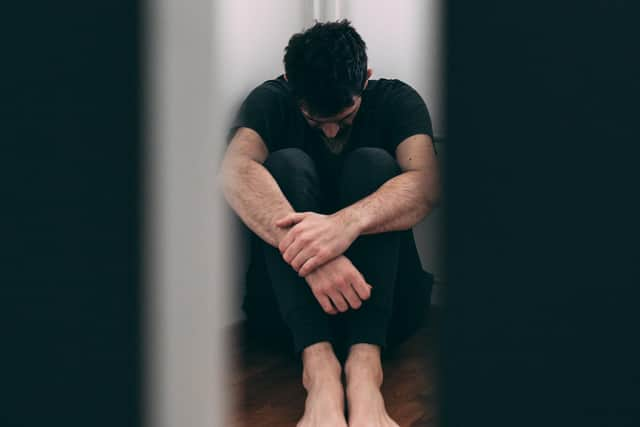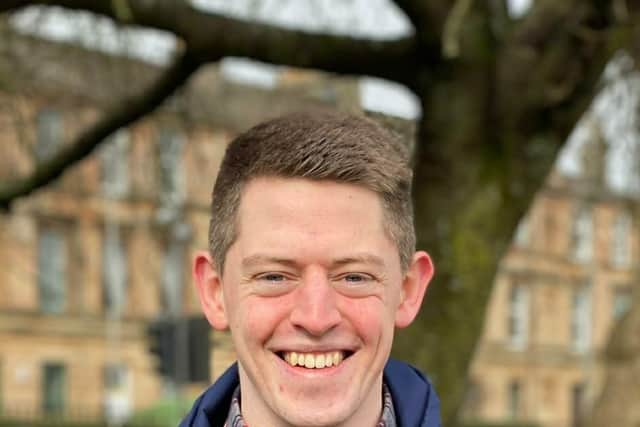Why Covid has left us at a crossroads over loneliness - Kenneth Watt
After over a year of restrictions on how we work, socialise and interact with the rest of the world, many of us have endured periods of intense loneliness and even more experienced feelings of isolation.
If not ourselves, we know of friends and relatives who have spent days without as much as a phone call. And even in a busy home, people can still feel alone.
Advertisement
Hide AdAdvertisement
Hide AdThe impacts of loneliness are well documented. It is not just bad for our mental wellbeing, it can be devastating for our physical health and productivity, as well as communities and public services.


Life with coronavirus has intensified many of the triggers we know to cause loneliness; bereavement, ill health, unemployment, increased caring responsibilities and anxiety.
Yet, the pandemic has made us think about how we connect with those around us in a new way. Communities have sprung into action, with individuals forging new associations with neighbours and coming together to support the most vulnerable through simple but kind things like shopping, collecting prescriptions and just being there for a chat.
However, we now stand at a crossroads.
As restrictions lift and we see groups of people back playing sport in parks and catching up with friends in beer gardens, loneliness is not going away for all. In fact, there is a risk that as some parts of society start to connect again, loneliness is further locked in for others.


The sad truth is that too many people in Scotland are feeling left behind and lonelier than ever.
Now is the time to think about the kind of society we want to become when we recover from the pandemic.
At the British Red Cross we've seen the extent of loneliness during the past 15 months, from refugees separated from their loved ones to people returning home from hospital, unable to see family or friends.
Often the people we support tell us they have no-one else. They’re vulnerable and might have long-term health conditions, be suffering from mental ill health, pushed to crisis point and unable to afford essential bills or are feeling lost, trapped in the asylum system.
Advertisement
Hide AdAdvertisement
Hide AdWe know, from what people tell us, what matters most to them – one-to-one conversations, contact with a loved one and knowing there is someone there to help.
Support in overcoming practical obstacles are important too – such as having phone data, being able to access the internet, and knowing how to use that technology in the first place.
Many people will emerge from Covid with decreased mobility and confidence to move forward, making the prospect of the outside world getting back to normal even more daunting.
We know that for those who have been shielding for themselves or those they live with since last March, engaging with society as they did pre-pandemic will be a slow adjustment.
A new study published by the Scottish Government this month shows almost two fifths of adults feeling lonely at some time in the space of one week, with overall rates of loneliness double what they were pre-pandemic.
Yet for some – often those who suffered the health impacts of Covid more severely – loneliness too threatens to hit them the hardest.
In the same Scottish Government Covid study, more vulnerable groups, especially those on low incomes and disabled people, reported higher levels of anxiety and loneliness.
Research carried out by the Scottish Commission for People with Learning Disabilities found participants feeling lonelier and worried about what life will be like after lockdown.
Advertisement
Hide AdAdvertisement
Hide AdAnd we know people from ethnic minority communities are also disproportionately affected. Previous Red Cross research found that in the UK, those from ethnic minority backgrounds feel so disconnected that more than half see their neighbours as strangers.
Looking beyond the pandemic, a recent inquiry carried out by the Red Cross for the All Party Parliamentary Group on Loneliness focused on the need for a truly connected recovery with no one left behind, including simple changes to public spaces to bring people together safely.
People told us that a lack of facilities like public toilets, ramps and baby changing facilities means that for many, the opportunity to see one another in person is not something they would be able to enjoy.
It should not be that you need to pay for a coffee to be able to sit under shelter or know you can access a toilet.
The Scottish Government has pledged to connect people after the pandemic and committed welcome investment towards achieving this. As we enter the summer months, some of this money would go a considerable way to opening up many of the public spaces we are fortunate to have in Scotland to more people.
And as we look towards planning a longer-term recovery, we should think about how we can ‘loneliness-proof’ public spaces and give communities a voice, including new housing developments and social infrastructure. Simple choices will decide whether or not a space brings people together or isolates them.
Involving local communities in these decisions is crucial. Glasgow recently committed to trialling twenty-minute neighbourhoods, allowing people to better connect with their local area and ensuring public transport meets the needs of the city.
With restrictions lifting and vaccines rolling out at pace, this is a moment of hope and opportunity. Let us not leave people behind as we move forward.
- Kenneth Watt is Scotland policy and public affairs manager at the British Red Cross
Comments
Want to join the conversation? Please or to comment on this article.